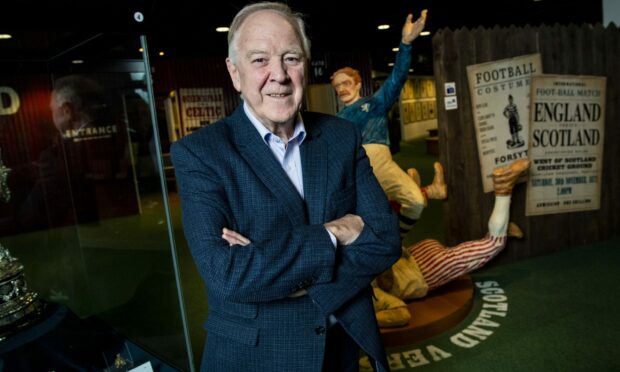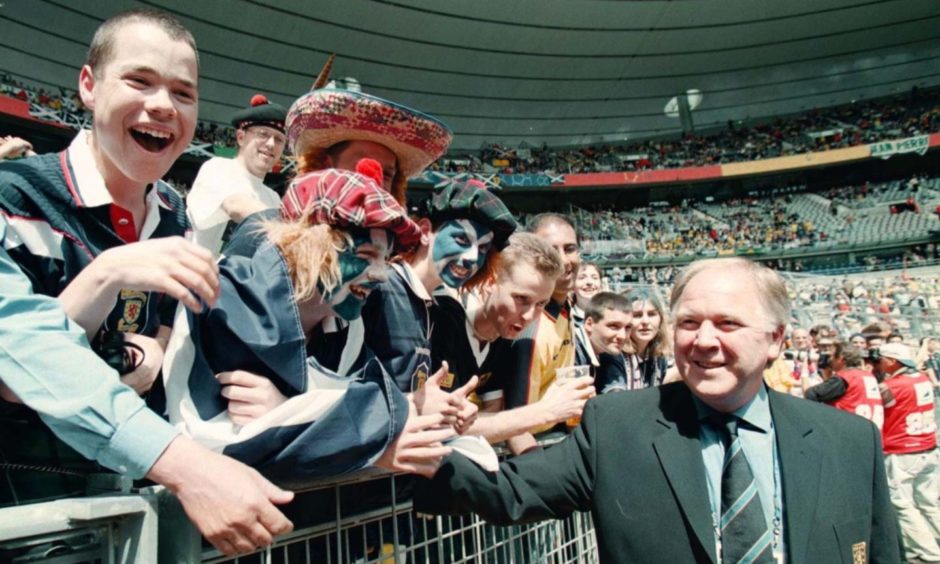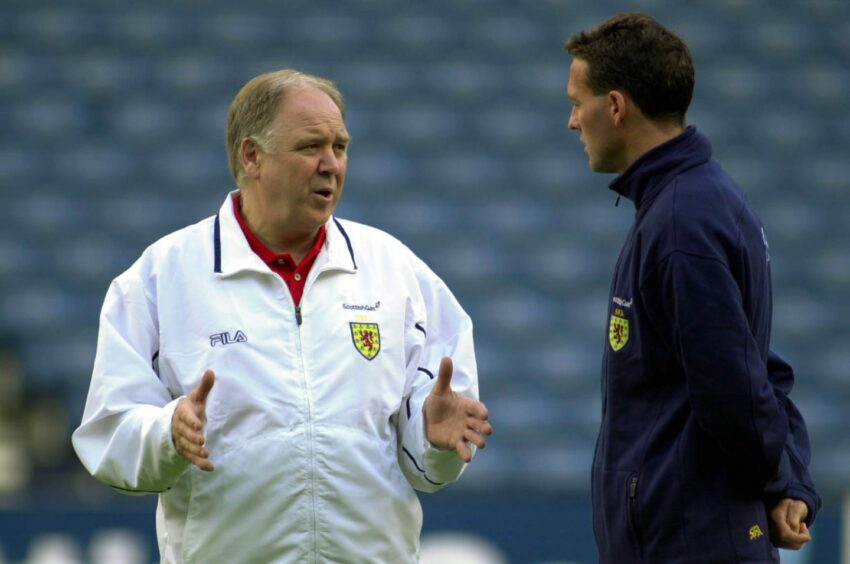Former Scotland and Aberdeen manager Craig Brown has died at the age of 82.
He died on Monday having been in hospital due to illness.
Brown, who led Scotland to Euro 96 and the 1998 World Cup in France, was in charge of the Dons from December 2010 to April 2013.
The former schoolteacher succeeded where bigger names would go on to fail by taking Scotland to both the World Cup and European Championship.
Brown also led Scotland to an Under-16 World Cup final and a European Under-21 semi-final.
Brown was born in Glasgow in July 1940 and, with his father in the RAF, spent his early years living along with his mother at his grandfather’s house in the city’s Corkerhill area, where air raids were common.
Brown’s father, Hugh, was a major influence on his future career choices. The former Hamilton player was a PE instructor and held several roles, including director of training at Jordanhill education college. The family moved around the west of Scotland until settling in Hamilton.
Brown was one of three brothers. Jock became a lawyer and football commentator who had a spell as Celtic general manager, and Bob was a Church of Scotland minister in Aberdeen.
Brown represented Scotland Schoolboys alongside Billy McNeill and Alex Ferguson and had a trial with Celtic before joining Rangers aged 17.
He combined playing for Rangers reserves with PE and primary teaching qualifications at Jordanhill but the left-half’s first-team route was blocked by the likes of Jim Baxter along with a niggling knee injury, which blunted his potential.
He had the first of five operations on his left knee after joining Dundee in October 1960, although he won a league winners’ medal in 1962. Manager Bob Shankly delivered his bonus to his hospital bed, a gesture which helped inspire the respect Brown would go on to show as a manager himself.
Brown remained a peripheral figure at Dens Park and supplemented his income by working part-time as a teacher before joining Falkirk in 1965. He quit playing in 1967, weeks after joining Stranraer, after being diagnosed with a bone disorder and arthritis in his troublesome knee.
Brown moved up the teaching ladder, becoming a headmaster in Uddingston and lecturer at Craigie College in Ayr, but football remained a major focus.
He coached school teams, had a role at the Scottish Football Association coaching centre at Largs, and a spell as a match reporter for the Sunday Post.
He became assistant to Motherwell manager Willie McLean in 1974 before becoming Clyde boss in 1977, retaining his lecturing post all the way. In nine years with Clyde, he twice led them to the Second Division title.
A hero of the Tartan Army
Brown accepted an invitation to form part of Ferguson’s coaching staff at the 1986 World Cup and remained with the national team when new Scotland manager Andy Roxburgh asked him to be his assistant as well as under-21 manager.
Scotland qualified for the 1990 World Cup and the European Championship two years later and Brown was named manager in November 1993 after Roxburgh quit in the wake of failure to qualify for USA 94.
With media and fans expecting a big-name appointment, Brown had some sceptics to win over but his team only conceded six goals in 20 qualifiers during his first two campaigns as Scotland reached Euro 96 and the World Cup two years later.
Scotland came within a goal of qualifying for the Euro 96 knockout stages, before a 3-0 defeat to Morocco consigned them to another early exit at the 1998 World Cup in France.
Brown led Scotland to victory over England at Wembley in 1999 but ultimately they lost out on the European Championship after an aggregate play-off defeat to Kevin Keegan’s side, and he resigned after missing out on the next World Cup.
Speaking in 2018, Brown said: “They might have sacked me, I don’t know. But I thought the fans were fed up with me, the press were fed up with the same old guy. I’d had a right good innings. I think I did the right thing, I think they needed something fresh.”
Brown, who was awarded a CBE for services to football in 1999, managed Preston for just over two years before being replaced by assistant Billy Davies, with whom he later worked with at Derby on a consultancy basis.
Motherwell asked him to take over on a caretaker basis following the departure of Jim Gannon late in 2009 and he did so well he was offered the job on a permanent basis.
Within a year and at the age of 70, Brown left Fir Park following an approach by Aberdeen.
He inherited a Dons side that were bottom of the table following a 5-0 defeat by Hearts at Tynecastle.
Brown steadied the ship and made some astute signings, such as Niall McGinn, Jonny Hayes and Mark Reynolds as well as bringing former Dons skipper Russell Anderson back to the club.
Although unable to lead the Dons into the top six during his time in charge, Brown helped lay the foundations for 2014 League Cup success that followed under Derek McInnes.
The Dons announced on 14 March 2013 that Brown was to retire at the end of the season and take up a non-executive director role on the Dons board.
His departure was brought forward following the appointment of McInnes later that month.



